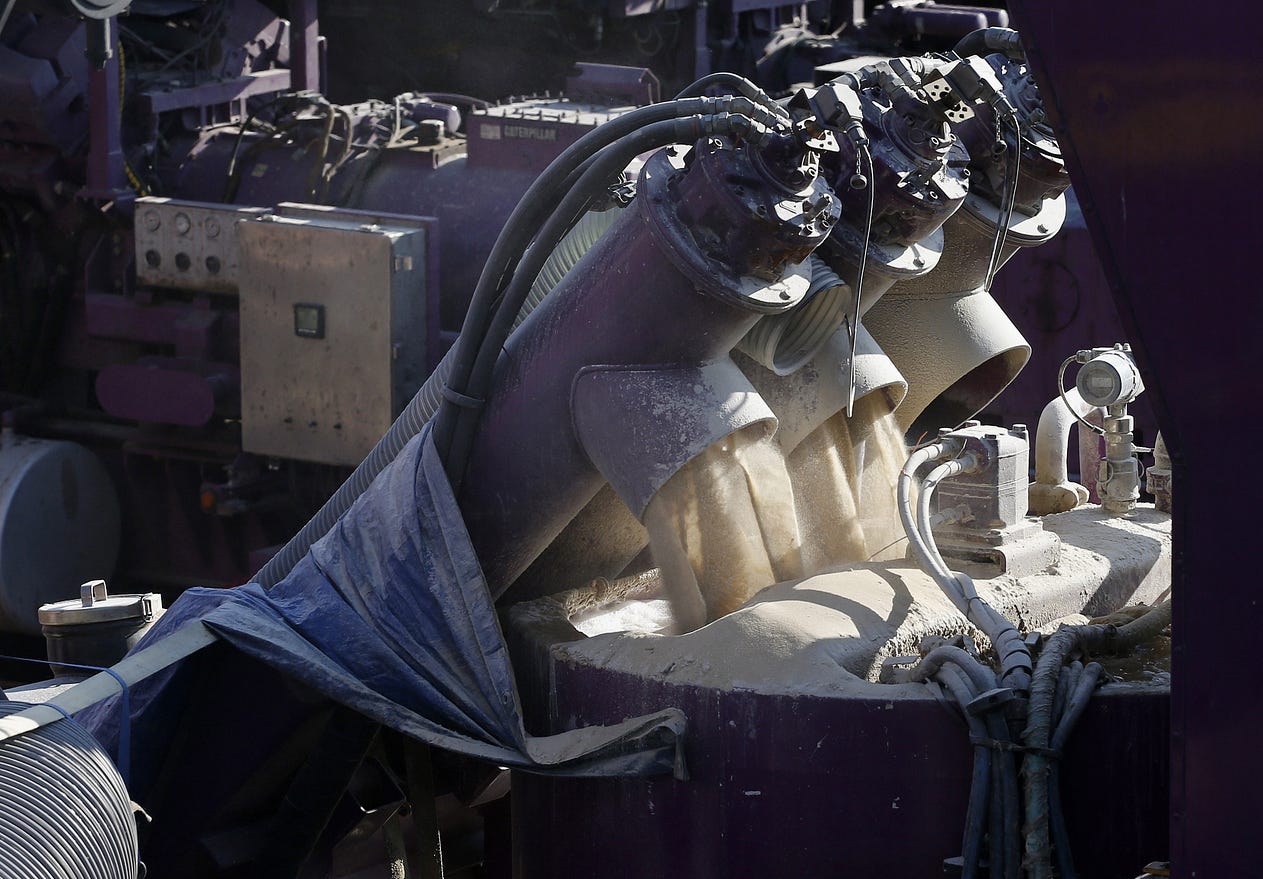EPA ADMITS THAT FRACKING CAN CONTAMINATE DRINKING WATER
Good thing so many people in Trump’s cabinet have ties to the fracking industries.

The Environmental Protection Agency has concluded that hydraulic fracturing (fracking) can affect drinking water.
In light of the facts that tap water near some fracking wells has become flammable, that two families in Pennsylvania last year won a court case over the impacts of fracking on their water, and that scientists have found arsenic in water sources near fracking, the EPA’s announcement Tuesday should not come as a surprise.
But it does, since just 18 months ago, a draft version of the EPA’s fracking report said that the EPA “did not find evidence that these mechanisms have led to widespread, systemic impacts on drinking water resources in the United States.”
Environmentalists applauded the finalized report, which they say is a more accurate representation of the science and data behind fracking.
“EPA’s report confirms what experts and the science show: that fracking operations put our drinking water at risk,” said Rachel Richardson, director of Environment America’s Stop Drilling Program. “That families from Colorado to Pennsylvania have had their water contaminated from fracking should be evidence enough, but today’s report confirms: fracking puts our water at risk.”
The EPA does not necessarily conclude that the effects are “widespread” or “systemic.” Instead, what this report more accurately depicts is the lack of data on fracking’s impact on water.
During hydraulic fracturing, oil and gas extractors pump large volumes of chemical- and sand-laced water into shale formations thousands of feet underground. As the water breaks up the shale, it releases deposits of oil and gas. The water mostly cannot be reused, so it is often pumped into storage wells.
The EPA identified six areas where fracking could have “more frequent or severe” impacts: using large volumes of water in arid or water-stressed regions; spilling the chemical-laced water; faulty injections that fail to contain the water; injections that go directly into water supplies; failure to treat the wastewater before it is released; and disposing of the wastewater inadequately.
But for most fracking operations, the agency was hampered by lack of baseline testing (showing water quality before the fracking took place) or a lack of public data at all.
“Data gaps and uncertainties limited EPA’s ability to fully assess the potential impacts on drinking water resources both locally and nationally,” the agency said in a statement. “The understanding of the potential impacts from hydraulic fracturing on drinking water resources will continue to improve over time as new information becomes available.”
It’s not clear that the science will continue to be investigated, at least in the near term. President-elect Donald Trump has suggested dismantling the EPA, and his nominee to head the agency has come out strongly in favor of oil and gas development.
Trump is in the process of assembling what will be the most anti-environment, pro-fossil fuel cabinet in modern history. Oklahoma Attorney General Scott Pruitt, who has fought EPA regulations for years, has been tapped to run the EPA.
It’s worth noting that water quality is not the only thing at risk from fracking. Fracking has been linked to numerous air quality concerns, including in areas where fracking wells are located close to schools. Fracking has been tied to asthma, migraines, and other health impacts.
Moreover, Pruitt’s home state has been plagued by earthquakes related to fracking. The earthquakes are thought to be primarily triggered by wastewater injections. The evidence is overwhelming, and Oklahoma’s oil and gas regulatory agency has withdrawn several injection permits, in an attempt to stop the increasing number of earthquakes. Pruitt did not get involved in the issue.
Rep. Raul Grijalva (D-NM) recently introduced a bill that would require state and federal officials to prevent earthquakes when possible.
“The bill would ensure that Oklahoma Attorney General Scott Pruitt, whose deep ties to the oil and gas industry have already received widespread coverage, would address the issue as head of the Environmental Protection Agency (EPA) under the Trump administration — a step he refused to take as attorney general,” Grijalva’s announcement says.
With Republican control of the House of Representatives, the Senate, and the White House, though, it is unlikely the bill will progress.







Follow Us!